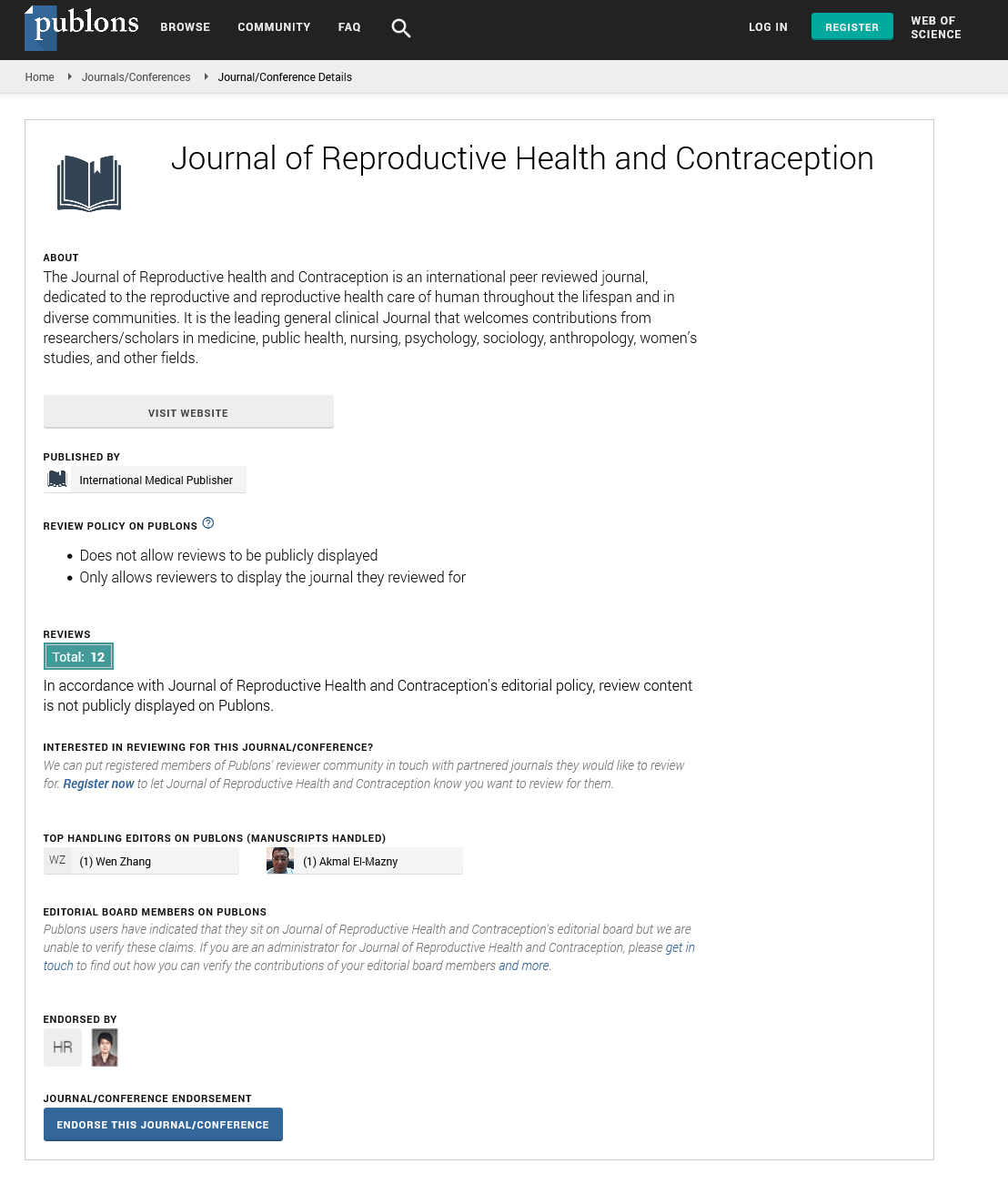ISSN : 2471-9749
Journal of Reproductive Health and Contraception
Postpartum depression in women refugees/asylum seekers - recognition and coping strategies
Global Summit on Nursing care and Midwifery
May 26-27, 2021 | Webinar
Antigoni Sarantaki
Midwifery Department, Faculty of Health & Caring Sciences University of West Attica, Athens, Greece
ScientificTracks Abstracts: J Contracept Stud
Abstract
Statement of the Problem: Population movement is one of the defining phenomena of our time. There is a steady increase in the global number of refugees and migrants, mainly the WHO European Region. Almost half of global refugees are women, many of childbearing age, who experience pregnancy and give birth during their migration journeys or upon resettlement. The purpose of this study is to provide factual information regarding postpartum depression (PPD) in female refugee population. Methodology & Theoretical Orientation: an online search in the Medline-PubMed databases, was conducted. Articles both in English and Greek were searched, using related keywords. For women seeking asylum from countries in turmoil or ravaged by war, the peripartum period is of significant risk for them and their infants. Prior adverse events such as the loss of cultural and linguistic frames of reference and the physical and psychological challenges related to seeking asylum are risk factors that negatively impact refugee mental health. This leads to maternal depression, and their children experience elevated rates of attachment disorders. “Guided self-help”, either alone or under professional supervision-is the first therapeutic approach for the treatment of PPD. Cognitive behavioral therapy, provides alternative ways of cognitive processes that may lead to the formation of newly acquired and healthy ways of thinking, that can assist in holding a more positive outlook towards life. Conclusion & Significance: PPD is a serious mental illness that needs immediate treatment. The availability of professional interpreters or intercultural mediators is the key to reducing stigma and fear related to a PPD diagnosis. Community-based group meetings are a valuable source of education, networking, support and may also provide a therapeutic benefit for migrant women struggling with PPD. This population is more at risk of developing PPD due to a complexity of issues including preand post-migratory stressors.
Biography
Dr. Antigoni Sarantaki received her undergraduate degree in midwifery from the Technological Educational Institute of Athens, Greece and her master’s degree in Advanced Midwifery Care from the University of Surrey, School of Health Sciences, Guildford, United Kingdom. She achieved her Ph.D. from Athens Medical School. The focus of her doctoral research, was family relationships and psycho-emotional development of children born after assisted reproduction. She is the author or co-author of dozens of peer-reviewed scientific articles. Her research and teaching focuses on women’s mental health, pregnancy & labor, infertility, assisted reproduction, family dynamics, semiology. Her current research interests include perinatal care and counseling for women with physical and/or mental impairments, male and female infertility related physical, social and mental disorders, transition to parenthood and midwifery care of vulnerable populations. She currently holds the position of Assistant professor, Midwifery Dept, Faculty of Health & Caring Sciences, University of West Attica, Athens, Greece.
Google Scholar citation report
Citations : 201
Journal of Reproductive Health and Contraception received 201 citations as per Google Scholar report
Journal of Reproductive Health and Contraception peer review process verified at publons
Abstracted/Indexed in
- Google Scholar
- China National Knowledge Infrastructure (CNKI)
- WorldCat
- Publons
Open Access Journals
- Aquaculture & Veterinary Science
- Chemistry & Chemical Sciences
- Clinical Sciences
- Engineering
- General Science
- Genetics & Molecular Biology
- Health Care & Nursing
- Immunology & Microbiology
- Materials Science
- Mathematics & Physics
- Medical Sciences
- Neurology & Psychiatry
- Oncology & Cancer Science
- Pharmaceutical Sciences
